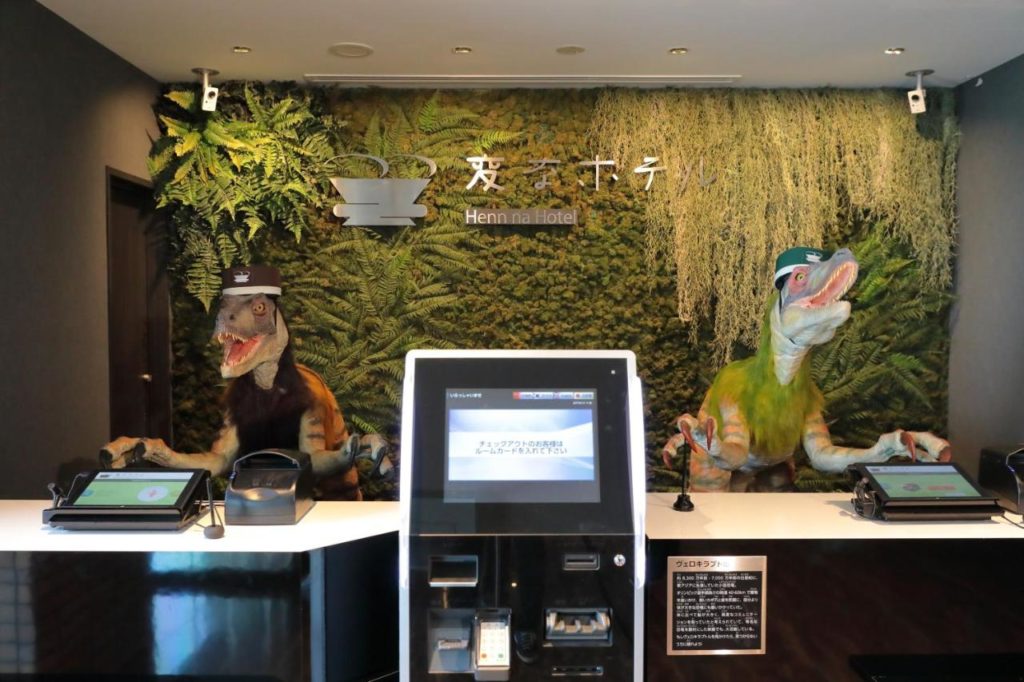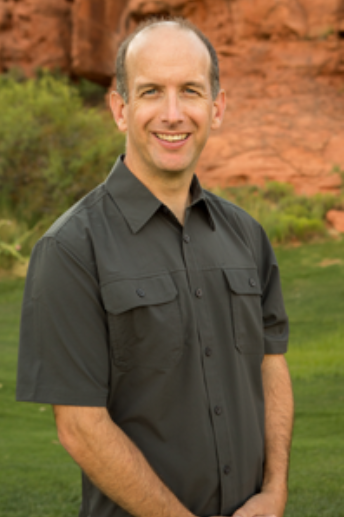Beyond the Classroom: Scott Reynolds Dives into Ethics and A.I.
The Technology Management MBA (TMMBA) Program enjoys a distinguished regiment of UW Foster School faculty members, all experts in their given field of study. Boasting significant consultation experience for prominent corporations, our professors excel at bringing the real-world business perspective into the classroom. Beyond exercising influence in academia, TMMBA faculty as respected researchers, also carry projects on social responsibility, ethics, and environmental sustainability.

Henn Na Hotel in Japan
We recently interviewed Professor Scott Reynolds, who has been teaching Ethical Leadership for TMMBA since 2006. He shared with us some of his recent research on the ethical interaction between human beings and artificial intelligence (A.I.).
With massive technological advancements during the past decade, A.I. has become more capable of assisting in our daily functions. Aside from manufacturing and transportation, robots also make a great impact on customer service functions.
Imagine walking into a hotel and being greeted by a robot dinosaur who oversees the front desk. After successfully checking in with Mr. Dinosaur, another robot will take over your luggage and send them to your assigned room. During your stay, you can rely on the robots for managing lights, room temperature, media, and entertainment. You get to experience these all at Henn Na Hotel in Japan. Operating almost entirely by A.I., the robots assist customers from the first second they enter the hotel lobby to the end of their stay.
Inspired by this unique hotel, Scott and his team began to wonder if individuals respond ethically when interacting with A.I. or robots. After interacting with robots, what attitude do people have towards those automatic machines?

Professor Scott Reynolds
Professor of Business Ethics
Weyerhaeuser Endowed Faculty Fellow
By linking what we know about how people respond to robots with what we know about how people respond to ethical situations, Scott and his team proposed an idea that human-like machines are more likely to elicit emotional responses while machines that can out-perform might elicit subservience. Based on this hypothesis, Scott presented three models: humans treating robots as tools, humans considering robots as human-like companions, and humans essentially worshipping robots as one would a deity.
For the third model, Scott brought up the news of people driving into rivers when following the orders from GPS. He believes an individual’s propensity to submit to others could play an indispensable role in this process as people who are naturally more submissive are more likely to revere robots that can display super-human characteristics. Of course, the opposite of submission is rebellion, so the unwillingness to submit could also explain why some refuse to accept advanced technologies regardless of their benefits.
Another of Scott’s ongoing research projects focuses on the application of A.I. in healthcare. Scott and his team conducted surveys on people’s willingness of following a computer’s advice in the hospital. Machine learning has advanced to the point that algorithms can provide incredibly sound advice for people in need of medical treatment. Unfortunately, most prefer to rely on human doctors for their medical guidance. But Scott’s team prompted people to think about bias, and subsequently found that those people with minority and underrepresented identities reported higher preference for services provided by A.I. as compared to others. The research is likely to serve as a meaningful reference for future adaption of A.I. systems in medical facilities.
Ethical Leadership is among the first few courses that TMMBA students take during their 18-month journey and is one of the most interactive classes in the curriculum. Scott often uses real business cases to immerse students in challenging situations where they reflect on their own personal ethical foundation. Scott is always amazed by how quickly TMMBA students adopt the frameworks they learn during class and apply them to their workplaces. “So many TMMBA students are willing to put the principles we teach immediately into practice—it’s a great testament to their open-mindedness and commitment to making a real difference in the world.”
